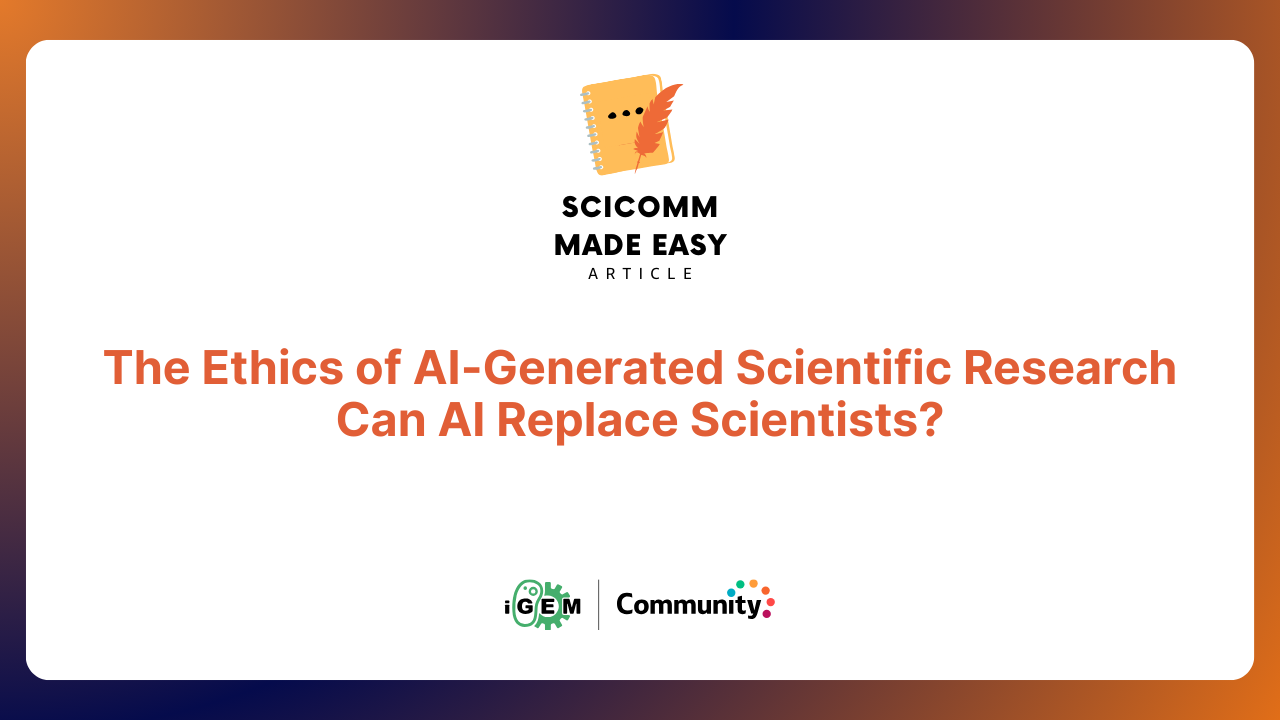Yizhi ‘Patrick’ Cai: An iGEMer who is unraveling nature’s design rules to create synthetic life
Yizhi ‘Patrick’ Cai still beams with enthusiasm when he recalls his first iGEM experience. “I realized the power of engineering biology. It was a transformational experience for me!” That was in 2006 when he joined the first Scottish iGEM team from the University of Edinburgh. Having just completed his Bachelor of Engineering degree at Central South University in China, Cai had a background in mathematics and computer science, but knew little about biology. As a student iGEM team member, he met people from different backgrounds and had many opportunities to present what he did in the lab in large, public venues, which gave him a lot of confidence. Cai and his teammates designed and built a biosensor that can detect arsenic and emit a pH signal in response, a project that resulted in Cai’s first scientific publication and that many scientists have continued to build upon and prototype. As Cai recalls, “We made a great, real world project!”
The following year, Cai became an iGEM Ambassador, where he was instrumental in opening up synthetic biology in China. In 2007, four teams from mainland China, one team from Hong Kong and one team from Taiwan participated in the iGEM Competition. And one of those teams – from Peking University, in Beijing – took home the Grand Prize. Each year since then, a growing number of iGEM teams from China have pushed the boundaries of synthetic biology and contributed to the development of a national synthetic biology community in China.
Cai stayed connected with iGEM as he went on to complete his Ph.D. at Virginia Tech, conduct postdoctoral studies at Johns Hopkins, and land his first academic position at the University of Edinburgh. He credits iGEM with giving him the experience he needed to be successful in his academic career. “Being an instructor and PI gave me a lot of experience with teaching and interacting with undergrads. Plus, I got a lot of skills in figuring out how to get sponsorships to fund the teams! The fact that I was able to get a lot of interaction with undergraduates was really key.” When asked why he continued with iGEM through the demanding early years of his career, he responded: “It transformed my life; it transformed my career. I wanted to pay it forward.”
Throughout his career, Cai has maintained the friendships and professional connections he made through iGEM, and has worked to expand the infrastructure for synthetic biology research. With his postdoc mentor Jef Boeke, he initiated and still coordinates the International Consortium for Synthetic Yeast Genome Project, to engineer the world’s first synthetic eukaryotic genome. In 2017, Cai moved his lab to the University of Manchester, where he now serves as Chair and Professor of Synthetic Genomics. He also holds visiting professorships at the University of Hong Kong, the MRC Laboratory of Molecular Biology, the Wellcome Sanger Institute and the Massachusetts Institute of Technology. Cai exclaims with certainty “Without iGEM, I would not be doing what I’m doing!”
Yizhi ‘Patrick’ Cai, far left, representing the University of Edinburgh (the first Scottish iGEM team), in 2006.
And what Cai is doing is truly impressive. He coordinated an international team of scientists who have dedicated more than 10 years of work to design and construct the world’s first synthetic yeast genome, published in a series of scientific papers in Science and Cell. This is a huge milestone in the field of synthetic biology that opens up new possibilities for engineering organisms with tailored functions that address human needs, such as sustainable development, food security, health and well-being. Now he is working with the Geneva Science and Diplomacy Anticipator (GESDA), where he recently chaired the synthetic biology committee to forecast what the field may look like in the future.
Although he has long since passed his iGEM torch to the younger generation, Cai has some predictions and advice for current iGEM teams. He thinks that in the next 5 years we’ll see a lot of recombination between emerging technologies, such as AI-driven genome design. He also thinks we’ll see much more predictable, targeted engineering without as much trial and error. Because of these advances, we’ll also see the societal impact of this emerging technology and a rise in its dual use implications as well as concern from the public.
Cai encourages iGEM teams to engage the public early on. “Think about the fears that people have and how you can help bring the technology to people safely and ethically,” he urges. He continues, “Keep in mind that there is no one, single public,” and hence “no one, single approach for getting people to understand the positive aspects of synthetic biology.” When talking about or presenting projects, he urges teams to “be careful not to overstate your claims. Instead, be accurate and honest about how your project is moving the field of synthetic biology forward to meet the needs of humans and the planet.”








